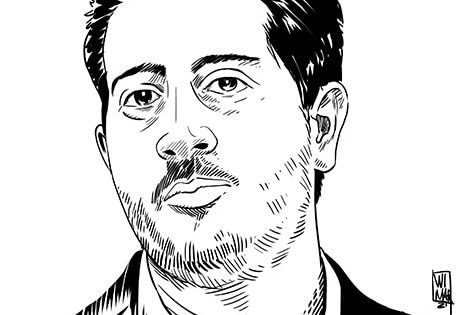(IAPA/IFEX) – The following is a 28 June 2001 IAPA press release: IAPA calls for the release of Cuban journalist Miami (28 June 2001) – The Inter American Press Association (IAPA) once again expressed its concern over the health of Cuban journalist Bernardo Arévalo Padron and the prison conditions he has had to face since […]
(IAPA/IFEX) – The following is a 28 June 2001 IAPA press release:
IAPA calls for the release of Cuban journalist
Miami (28 June 2001) – The Inter American Press Association (IAPA) once again expressed its concern over the health of Cuban journalist Bernardo Arévalo Padron and the prison conditions he has had to face since 1997 while completing his sentence. In addition, the organisation publicly called on the authorities to immediately release the journalist.
The hemispheric organisation’s concern stems from a letter by the journalist addressed to the regional vice-chairman of the Committee on Freedom of the Press and Information in Cuba, Raúl Rivero, in which he describes the precarious situation in the prison, which he refers to as a “concentration camp.”
IAPA President Danilo Arbilla, of the Uruguayan weekly Búsqueda, and the chairman of the Committee on Freedom of the Press and Information, Rafael Molina, of the Dominican Republic magazine Ahora, asked the Cuban government to immediately release Arévalo Padron from prison.
“The subhuman conditions in the prison bear no relation to the alleged crime for which the journalist was sentenced, namely the exercise of freedom of expression,” noted Arbilla. Molina added that “the treatment [the journalist] is receiving in prison goes against the most basic concepts of human rights,” referring to the fact that Arévalo Padron has received no medical attention from the prison authorities.
Following is Rivero’s text in its entirety, which contains excerpts from Arévalo Padron’s letter. This document and additional information on Cuba can be found on IAPA’s site at http://cuba.sipiapa.org
“Letter from the South”
By Raúl Rivero
Havana – The letter is hastily written, with a faint blue colour pen on a page taken from a school book. On the top right hand side the following is written: El Diamante, Destacamento 21, Rodas, Cienfuegos.
As the summer heat is beginning to sizzle, I receive a letter from journalist Bernardo Arévalo Padron, a man who since 1997 has been completing a six-year prison sentence for allegedly insulting (“desacato”) President Fidel Castro and Vice-President Carlos Lage.
After outlining some personal matters that the journalist entrusts me with, he begins to describe some scenes from his daily life in this penitentiary, located in Cuba’s south-central region.
“Here – Arévalo writes -, our situation is insufferable. Summer heat, overcrowding, rodents, humiliation, lack of drinking water…! This concentration camp is hell.”
“The bedbugs feed on our blood while we sleep,” the director of the Línea Sur Press independent agency notes further down in his letter.
“But the saddest and most degrading aspect of this jail is that the soldiers use the common prisoners in their dirty work in fabricating accusations against the political prisoners and stealing from them.”
The journalist writes that the sanitary services are in terrible hygienic conditions because “they are only cleaned when a high level inspection is expected to take place.”
“They bow to authority so much that on those days even the quality of the food is improved. One of the toilets our family members have to use during regulation visitation days does not have a door and on another one the door frame is falling off. Imagine how embarrassed our family members are when they have to use a dirty lavatory without doors!”
The journalist illustrates the state of the prisoners’ food with this bitter note at the end of his letter. “In tonight’s dinner the cassava and the dessert (a sweet with fruits) had already began to decompose and we could not eat this rotten meal.”
Arévalo explains that some of the younger prisoners, imprisoned for common crimes, offer sexual favours to other prisoners in exchange for some food, sugar, cigarettes or drugs.
“The most disconcerting aspect of all this – he states – is that we, the political prisoners, are forced to serve our sentence under these conditions. I want all these denounciations to be made known,” the imprisoned journalist concludes.
Bernardo Arévalo Padron, 36 years old, is scheduled to be released on 15 November 2003, at exactly 3:00 p.m.


